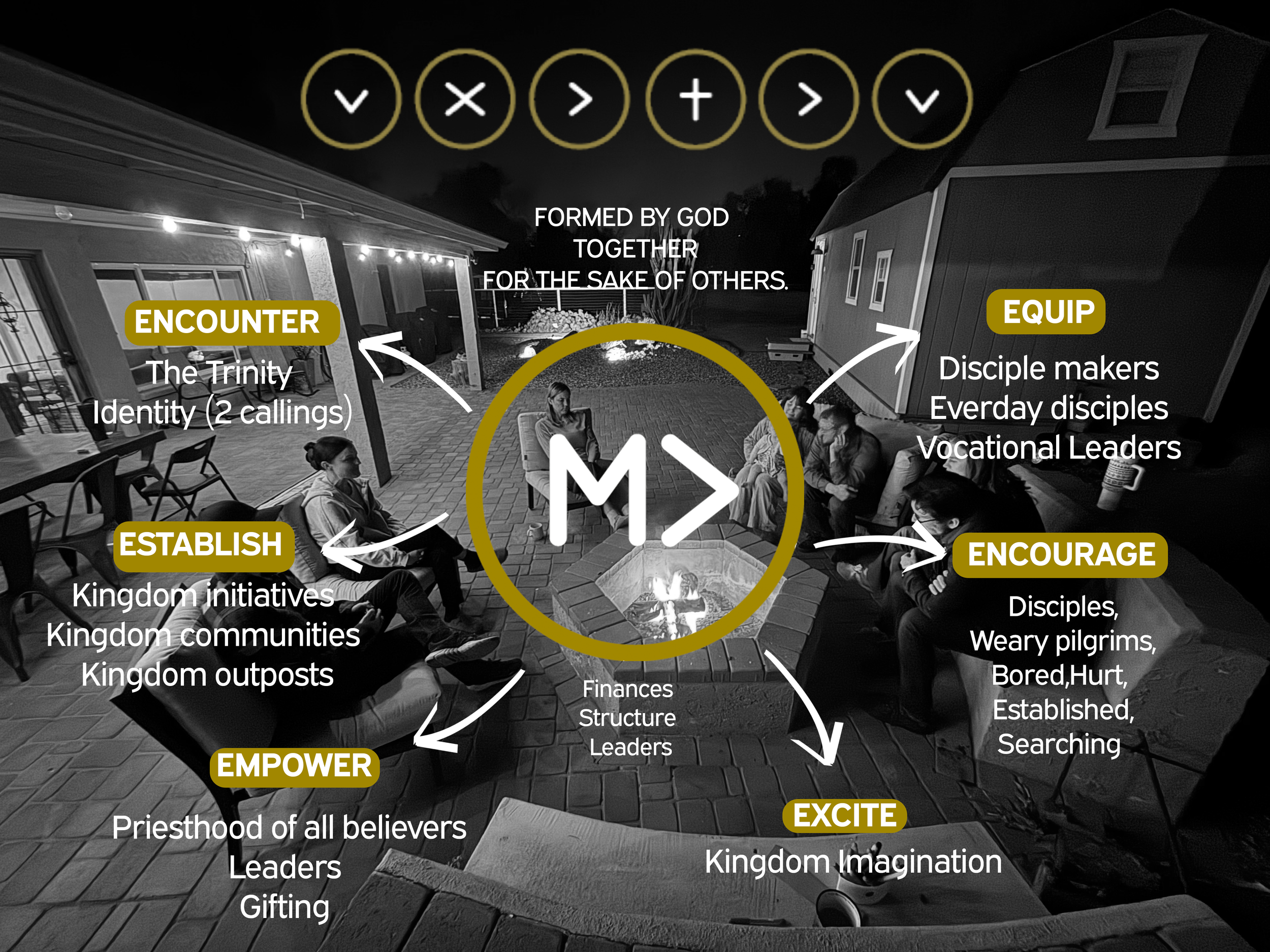In part 1, we concluded that Jesus invites us to pray in such a way that anticipates the union of heaven and earth. Prayer gives us eyes to see reality as it truly is and will be forever- a world permeated with God’s near and loving presence. But if we are really being honest with ourselves we rarely experience prayer this way. More often, prayer feels burdensome, tiring, disappointing, or overwhelming. We experience disharmony when what we know should be true about our experience with God fails to match up with our reality. We see this all over the scriptures, embodied in biblical characters, explicit instructions to persevere in prayer, and throughout the prayer book of the Bible known as the Psalms. Ultimately, prayer is something that is often met with struggle and dissonance. But in a beautiful, upside-down-sort-of-way, this births the encounter of where divine grace meets our human frailty.
So, what do we do when our experience of prayer feels lacking? Below I offer 5 humble suggestions from trial and (much) error.
Cultivate a Deep Confidence in the Character of God
A.W. Tozer once famously wrote, “what comes into our minds when we think about God is the most important thing about us.” How we understand God impacts many of our daily decisions either consciously or unconsciously. Likewise, our assumptions about God’s character either drive us towards or away from prayer. Curating a true and trustworthy image of God in our self-understanding will lead us to prayer when it feels most difficult.
Have a Container for When Life Spills
Tyler Staton writes, “prayer is about love, and that means it cannot be sustained on fluttery feelings, good intentions, and spontaneous moments alone. It needs a container, something like the fidelity of a marriage, a set of practices or rituals within which that love can grow, mature, and blossom.” Many times our efforts to pray are frustrated by our inconsistent and busy schedules. Having a committed daily and weekly prayer rhythm might help us cultivate the kind of heaven on earth prayer that Jesus encouraged his disciples to seek.
Don’t Be Afraid to “Fail”
I put fail here in quotations because it’s nearly impossible when it comes to prayer. According to Roberta Bondi, “if you are praying, you are already ‘doing it right.’” Our job is pretty simple when it comes to prayer. We mustn’t overcomplicate it or idealize any form, version, or model. Ronald Rolheisser encourages us with this urge: “There is only one nonnegotiable rule for prayer: ‘show up! Show up regularly!’”
Commit to Simplicity, Creativity, and Spontaneity
A common misunderstanding about prayer has to do with the way we often compartmentalize our lives, thinking that our praying time has to fit within a prescribed piece of our day. In reality, the more prayer becomes what Jesus imagined, heaven on earth, the more we begin to see that this kind of praying concerns all life. And that is not to say that we should lock ourselves in a private room and spend all day in “heaven on earth,” but rather begin to imagine in concrete ways how we can bring heaven into earth through creative, simple, and spontaneous acts of prayer in ordinary life.
Expect to Give Something Up
Lastly, while this kind of prayer is something many of us long for, it is not inevitable. It must be pursued intentionally, and with all intentionality comes sacrifice. To experience the richness of life with God, here and now, a taste of how it is in heaven, we will most likely have to give something up. So I close with the wisdom of the Anglican saint Evelyn Underhill, “spiritual achievement costs much, though never as much as it is worth.”
By Ben Ide





